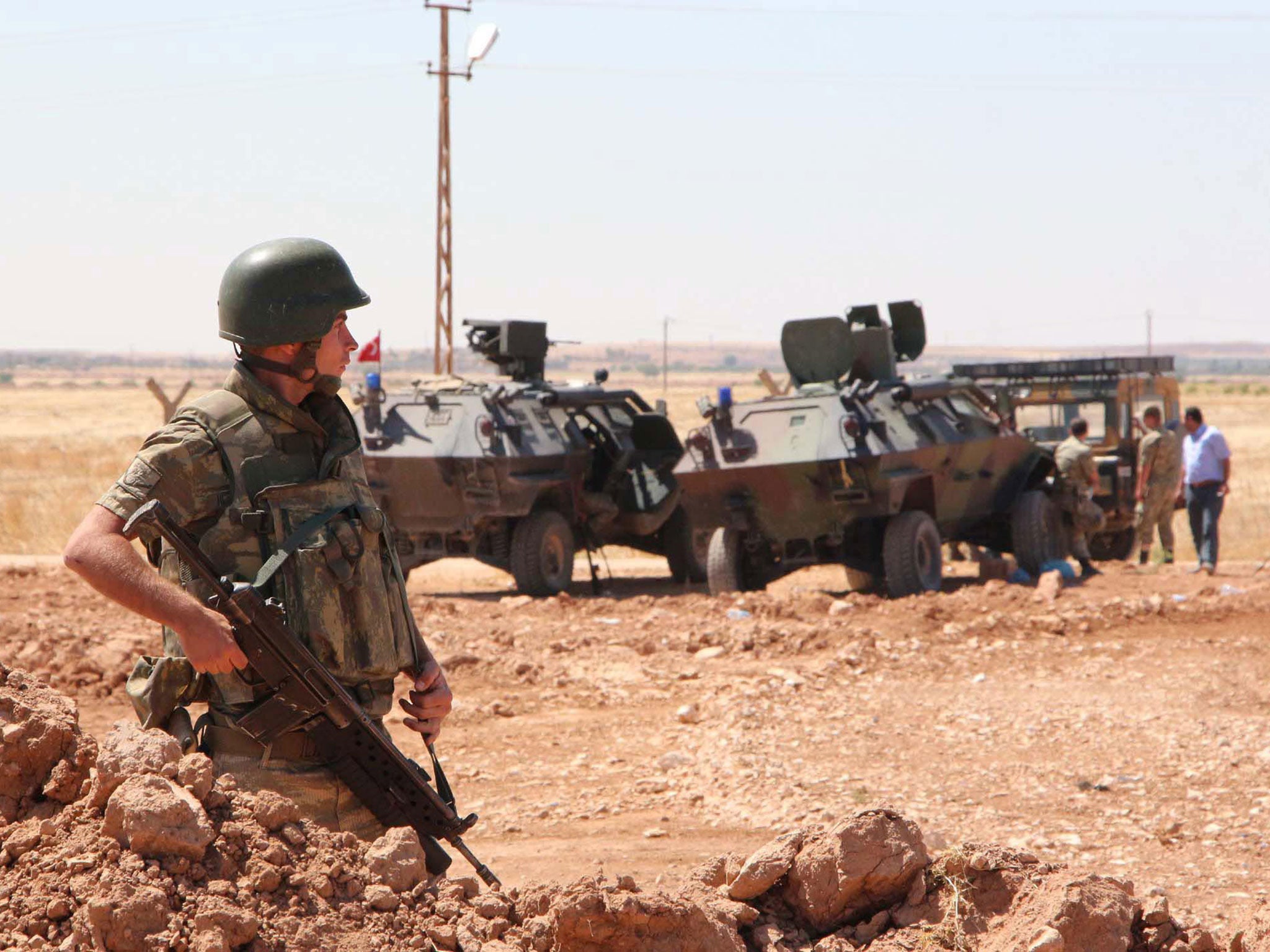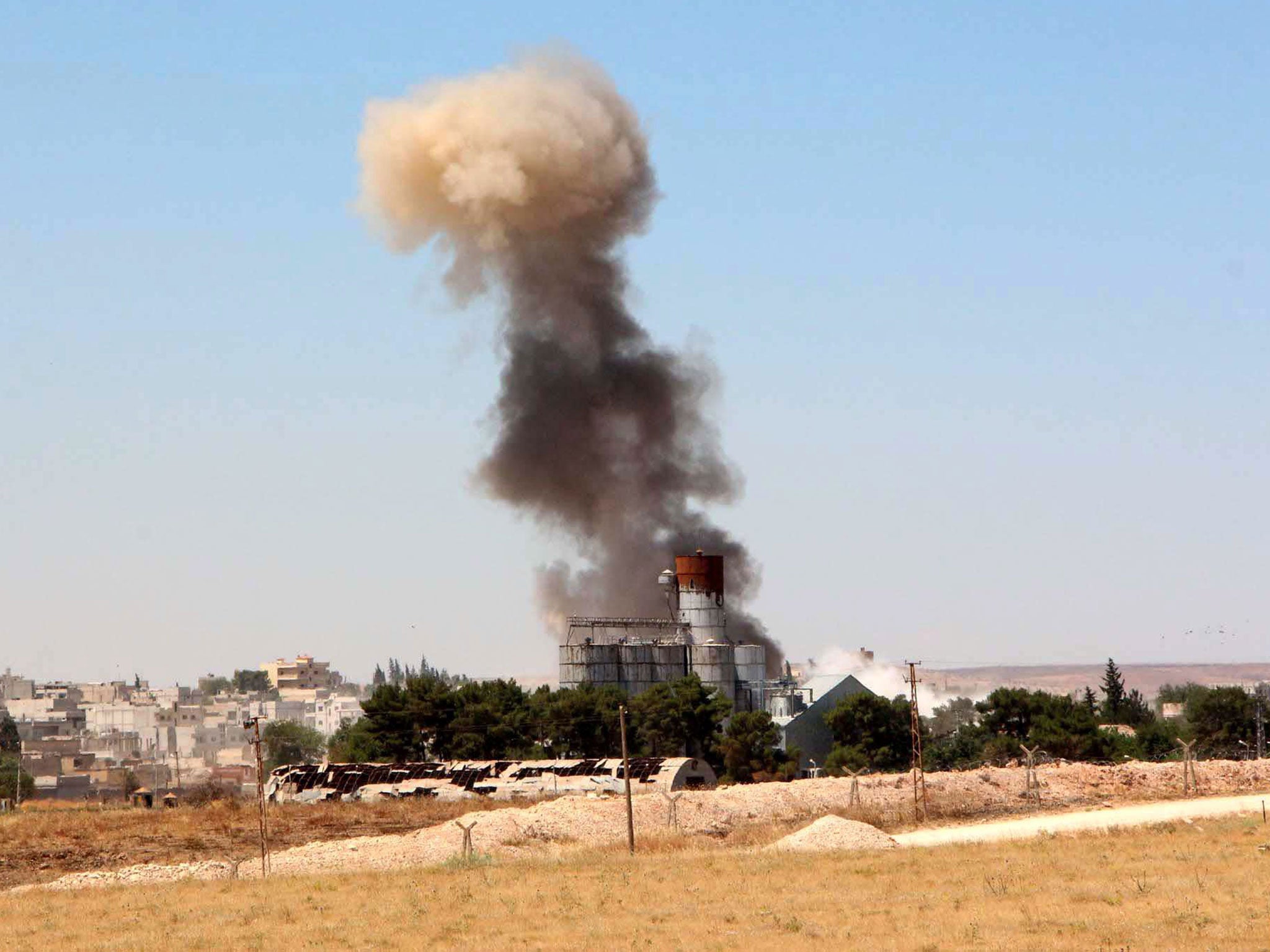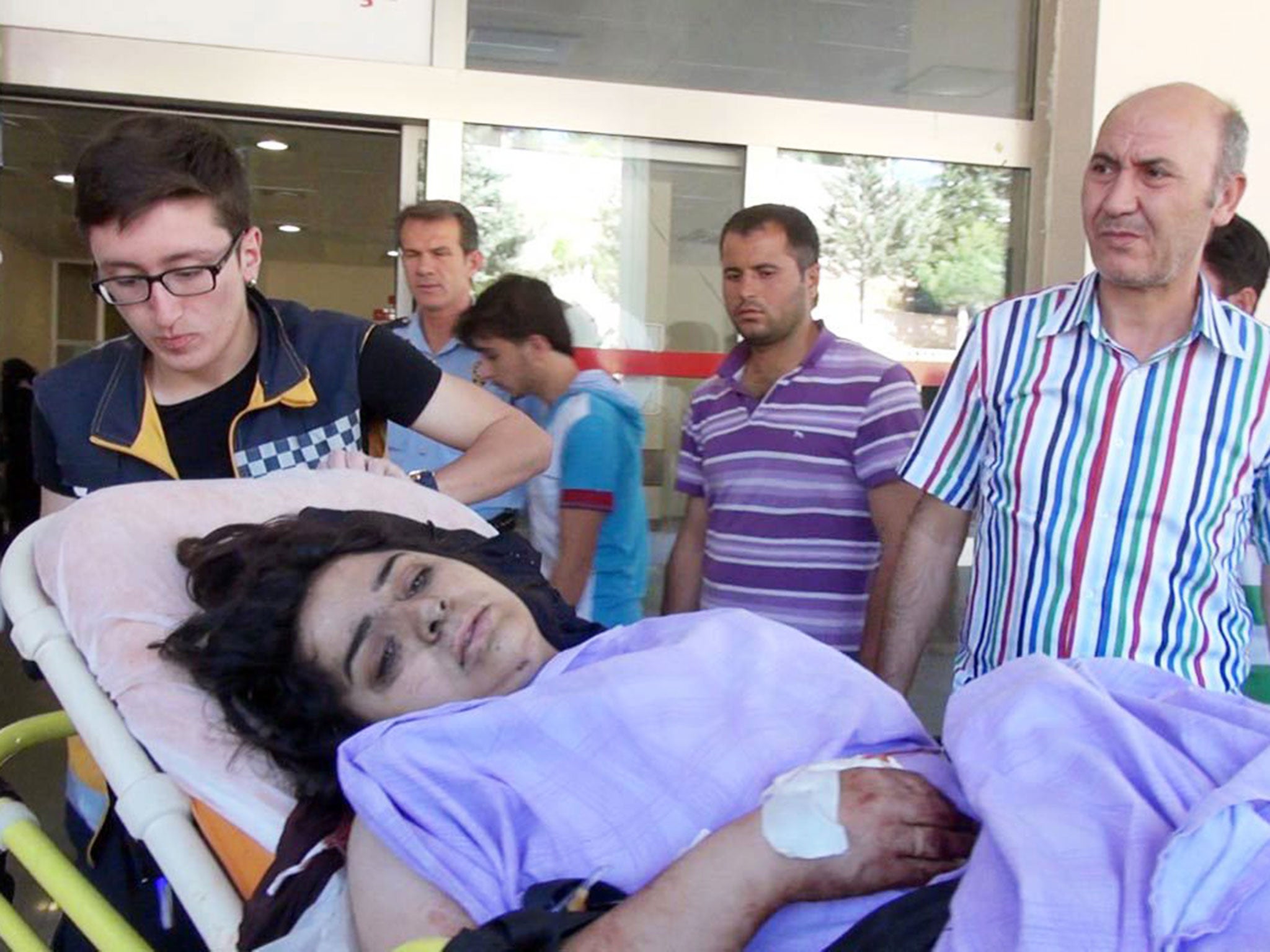Isis re-enters Kobani: Fighting between militants and Kurds restarts in key Syrian border city
Isis had been on the back foot in northern Syria

Your support helps us to tell the story
This election is still a dead heat, according to most polls. In a fight with such wafer-thin margins, we need reporters on the ground talking to the people Trump and Harris are courting. Your support allows us to keep sending journalists to the story.
The Independent is trusted by 27 million Americans from across the entire political spectrum every month. Unlike many other quality news outlets, we choose not to lock you out of our reporting and analysis with paywalls. But quality journalism must still be paid for.
Help us keep bring these critical stories to light. Your support makes all the difference.
Isis militants have re-entered the key Syrian border city of Kobani, five months after they were driven out in what was hailed as a victory for the US-led coalition.
Fighting between Isis and the Kurdish militia defending the city has restarted, according to the UK-based monitoring group the Syrian Observatory for Human Rights.
Isis heralded the start of the assault overnight with a suicide car bomb attack near the border crossing between the town and Turkey, the group said.

An official from the YPG militia told the Kurdish media network Rudaw that two more car bomb attacks had been carried out, and that "groups of Isis fighters are driving around Kobani's alleys and streets killing civilians".
Hospital officials, confirming the return to violence, said that at least 12 people had been killed and around 70 wounded in the bomb attack and ensuing fighting.
Two other attacks were launched at roughly the same time as the Kobani offensive, one in the northern city of Hassakeh, where militants were set to have captured some districts from the YPG.
Syrian state TV said Isis fighters captured and then killed several people in Hassakeh, including the head of a military barracks. It said Isis had itself sustained "many" casualties, including the commander of the attackers, who it claimed was a foreign fighter.
And in southern Syria, Isis engaged the Syrian state forces in a separate attack on city of Deraa.
According to Reuters, heavy fighting in Deraa was followed by army air strikes as forces loyal to President Bashar al-Assad struggled to hold on in the city, which lies close to a key border with Jordan.
The YPG has been making gains in recent weeks and months - most notably when Isis was driven out of the key city of Tal Abyad earlier in June.
And with its Syrian stronghold of Raqqa under threat, Isis appears to have launched the dual northern attacks as a "diversionary" measure, according to Quilliam's analyst Charlie Winter.

The removal of Isis from Kobani on 26 January made international headlines earlier this year, after a siege that had lasted a number of months. It was then seen as a crucial symbolic victory for both the YPG and the international coalition providing it with air support.
It is almost one year since the anniversary of Isis declaring a caliphate across the territories it controls, and the group has threatened "something big" to mark the holy month of Ramadan.
Dr Natasha Underhill, an expert on terrorism in the Middle East at Nottingham Trent University, said the assault on Kobani was a "warning as to the strength of Isis" despite recent reports of its losses.
"The two-pronged approach used by the group in the re-taking of parts of Kobani show that this group is functioning more like an army than a terrorist organisation," she said.
"This is one of the most dangerous features of their attacking strategy, made all the more worrisome as many of those higher level militants were trained by the US in terms of tactics and weapons training."
Subscribe to Independent Premium to bookmark this article
Want to bookmark your favourite articles and stories to read or reference later? Start your Independent Premium subscription today.
Join our commenting forum
Join thought-provoking conversations, follow other Independent readers and see their replies
Comments